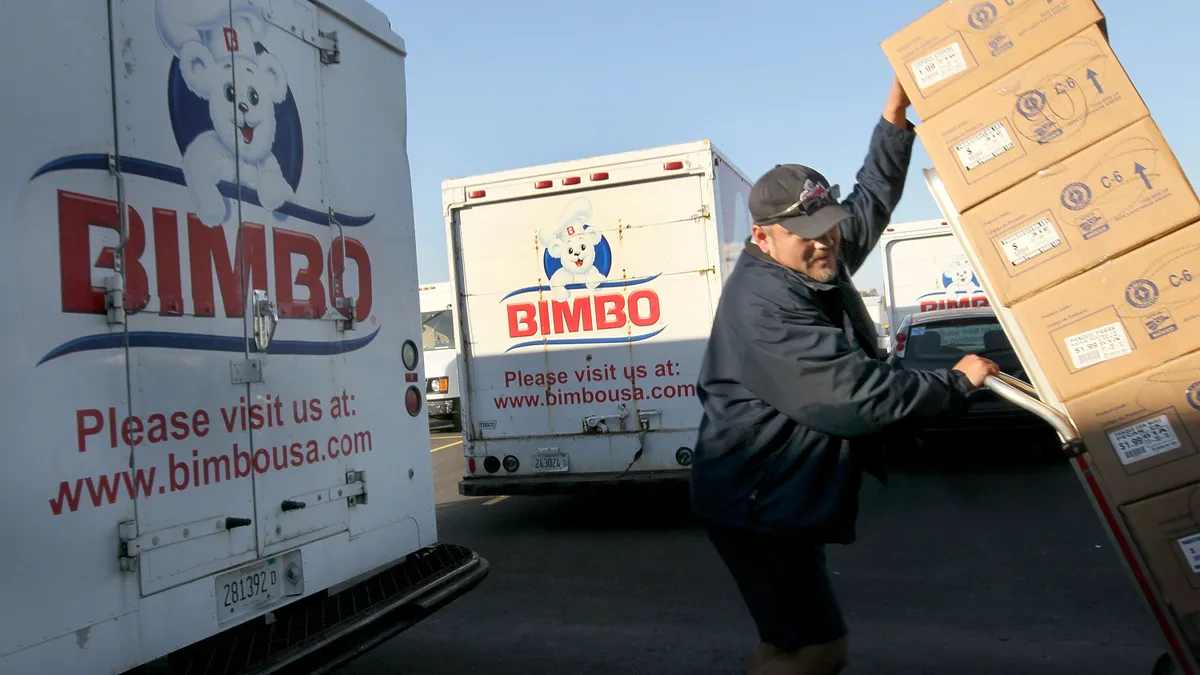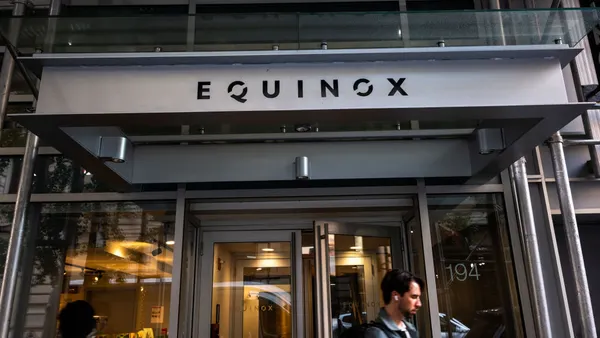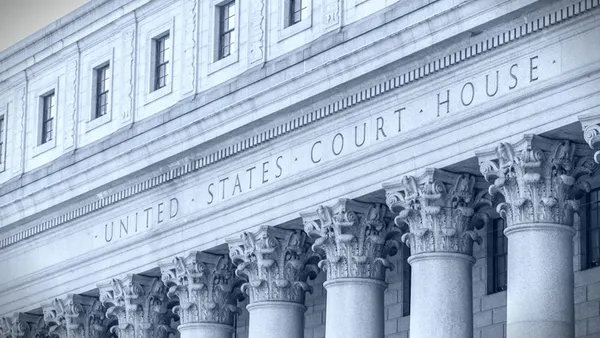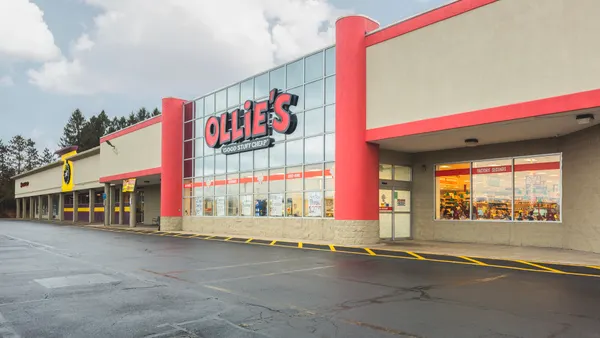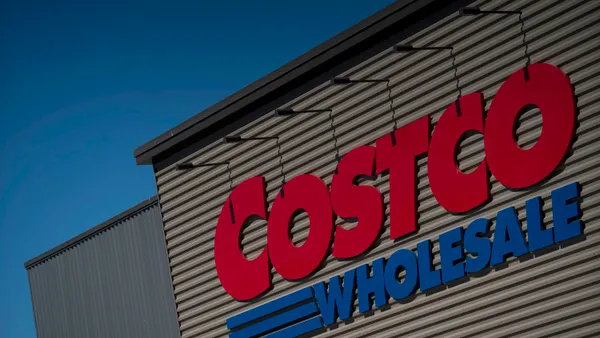Dive Brief:
- A federal district court in Vermont tossed an attempt by Bimbo Bakeries to recoup money against distributor drivers after they sued it for allegedly misclassifying them as independent contractors under the Fair Labor Standards Act.
- According to court records in Provencher, et. al. v. Bimbo Bakeries USA, the drivers purchase wholesale baked goods from Bimbo and resell them to retailers. They work under distribution agreements, which indicates they are “independent contractors” but allegedly allows Bimbo to negotiate with the retailers nearly all the terms of their transactions, including pricing and how the products are promoted, shelved, delivered and displayed, court documents said. After the drivers sued Bimbo for overtime under the FLSA and Vermont law, the company filed a counterclaim for unjust enrichment under state law. Bimbo alleged that if the drivers are considered “employees,” they should have to pay back all the revenue and profits they received as independent contractors.
- In a Dec. 5 ruling, the district court dismissed the counterclaim. The court agreed with the U.S. Department of Labor, which intervened in the case, that the FLSA preempted the counterclaim because it would “stand as an obstacle” to fulfilling the FLSA’s purpose and objectives. For one, it would give employers an incentive to violate the statute and seek reimbursement for their violations, the DOL explained in a media release. It could also discourage employees from bringing FLSA claims or speaking with DOL representatives if they knew benefits conferred them under an employment contract could be clawed back, the court said. Bimbo Bakeries did not respond to a request for a comment prior to press time.
Dive Insight:
Employers are often reminded to stay up to date on state wage and hour laws. This is because, as the court pointed out in Bimbo Bakeries, the FLSA allows states to provide more protection than the FLSA — and many do.
For example, state laws such as Arizona’s ($13.85/hr), Florida’s ($12/hr), and Illinois’ ($13/hr), have higher minimum wage requirements than the FLSA ($7.25/hr), a DOL chart shows. Where employees are subject to both state and federal minimum wage laws, they are entitled to the higher minimum wage, according to a DOL FAQ.
Preemption issues arise when state laws, including common law remedies such as contribution, indemnification and unjust enrichment, contravene the purpose of the FLSA, the court explained. Relevant here, the FLSA “contains a thorough remedies section detailing the offsets available to liable employers,” it emphasized. These remedies include allowing employers to credit certain categories of extra “premium rate” pay toward unpaid overtime, the court said.
However, while employers “may certainly argue that they have paid (alleged) employees in a manner that should offset their FLSA liability,” they may not seek to recoup all the benefits “they allegedly conferred to a plaintiff on the basis of a misclassification,” the court concluded.
Notably, in 2020, the 2nd U.S. Circuit Court of Appeals found that Bimbo drivers in New York were properly classified as independent contractors. The 2nd Circuit covers federal court appeals from New York, Vermont and Connecticut.
The panel weighed several factors to conclude that as a matter of “economic reality,” the drivers were not “employees” under the FLSA because they did not depend on Bimbo’s business to render services.
For instance, the 2nd Circuit found the drivers controlled the overall scope of their delivery operations; were free to set up their weekly schedules, subject only to warehouse hours and customer preferences; and made significant investments in, and had the opportunity to profit from or lose money on, their businesses.


